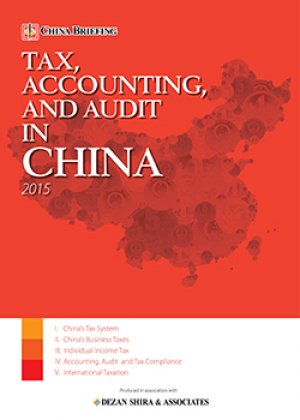China Regulatory Brief: New Preferential Policies for SMEs, Shanghai Foreign Residence Permit Rules
SMEs to Enjoy New Preferential Tax Policies in China
On August 19, Chinese Premier Li Keqiang announced a new round of preferential tax policies for small and medium-sized enterprises (SMEs) during an executive meeting of the State Council. Small and medium-sized enterprises with a taxable income not exceeding RMB 300,000 are allowed to pay corporate income tax at the rate of 20 percent on only 50 percent of their taxable income. Further, SMEs with a monthly sales volume of RMB 20,000 to RMB 30,000 shall be exempt from value-added tax (VAT) and business tax. The policy will take effect on October 1 and last until December, 2017. In the past eight years, China has taken a series of measures to aid in the development of SMEs such as establishing special support funds, reducing corporate income tax (CIT) and value-added tax (VAT) rates, and clearing some administrative fees.
Shanghai Implements Detailed Rules on Foreign Residence Permit
The Shanghai Municipal Human Resources and Social Security Bureau (HRSS) recently released the “Implementation Rules on Administrative Measures of Shanghai on Residence Permits for Foreign Talents.” The Rules stipulate that qualified overseas talent with special skills or who have a bachelor’s degree, and who legally work or have a business in Shanghai, may apply for the Type B residence permit. The relevant employers need to apply to the local HRSS bureau and local police station for the permit. The permit’s maximum period of validity is set at 10 years. The period will be determined by the Shanghai Municipal HRSS bureau on a case-by-case basis, according to the applicant’s age, academic qualifications, field of specialization, working experience, employment contract and other conditions.
China Launches Record-Filing System for Foreign-invested Advertising Enterprises
China’s State Administration for Industry and Commerce (AIC) has recently announced its decision to launch the record-filing system for foreign-invested advertising enterprises. According to the decision, the examination and approval formalities for advertising projects and branch establishment by a foreign-invested advertising enterprise shall be replaced by the record-filing system. Previously, the establishment of a foreign-invested advertising enterprise was subject to certain restrictions such as main business, operational experience and annual advertising business turnover. First piloted in the Shanghai Free Trade Zone (FTZ) in 2013, the filing system is now further expanded nationwide.
China Releases Draft of Online Food Trading Business Rules
On August 18, the State Food and Drug Administration (SFDA) issued the “Measures for Supervision & Administration of Online Food Trading,” which is currently seeking public opinions. The Measures clarifies that the online food traders shall obtain the food trading license or be filed with the SFDA before starting up their online food trading business. Further, online food traders are not allowed to entrust other entities or personnel to conduct online food trading business. A third party online trading platform needs to provide the real name, address and valid contact details of the trader to consumers if needed.
|
Asia Briefing Ltd. is a subsidiary of Dezan Shira & Associates. Dezan Shira is a specialist foreign direct investment practice, providing corporate establishment, business advisory, tax advisory and compliance, accounting, payroll, due diligence and financial review services to multinationals investing in China, Hong Kong, India, Vietnam, Singapore and the rest of ASEAN. For further information, please email china@dezshira.com or visit www.dezshira.com. Stay up to date with the latest business and investment trends in Asia by subscribing to our complimentary update service featuring news, commentary and regulatory insight. |
![]()
 Tax, Accounting, and Audit in China 2015
Tax, Accounting, and Audit in China 2015
This edition of Tax, Accounting, and Audit in China, updated for 2015, offers a comprehensive overview of the major taxes foreign investors are likely to encounter when establishing or operating a business in China, as well as other tax-relevant obligations. This concise, detailed, yet pragmatic guide is ideal for CFOs, compliance officers and heads of accounting who must navigate the complex tax and accounting landscape in China in order to effectively manage and strategically plan their China operations.
 Human Resources and Payroll in China 2015
Human Resources and Payroll in China 2015
This edition of Human Resources and Payroll in China, updated for 2015, provides a firm understanding of China’s laws and regulations related to human resources and payroll management – essential information for foreign investors looking to establish or already running a foreign-invested entity in China, local managers, and HR professionals needing to explain complex points of China’s labor policies.
 Employing Foreign Nationals in China
Employing Foreign Nationals in China
In this issue of China Briefing, we have set out to produce a guide to employing foreign nationals in China, from the initial step of applying for work visas, to more advanced subjects such as determining IIT liability and optimizing employee income packages for tax efficiency. Lastly, recognizing that few foreigners immigrate to China on a permanent basis, we provide an overview of methods for remitting RMB abroad.
- Previous Article China’s E-Commerce Market Faces Tightened Regulations
- Next Article Domicile Registration in China – Lifted Restrictions in Shanghai, Guangzhou and Chongqing





























